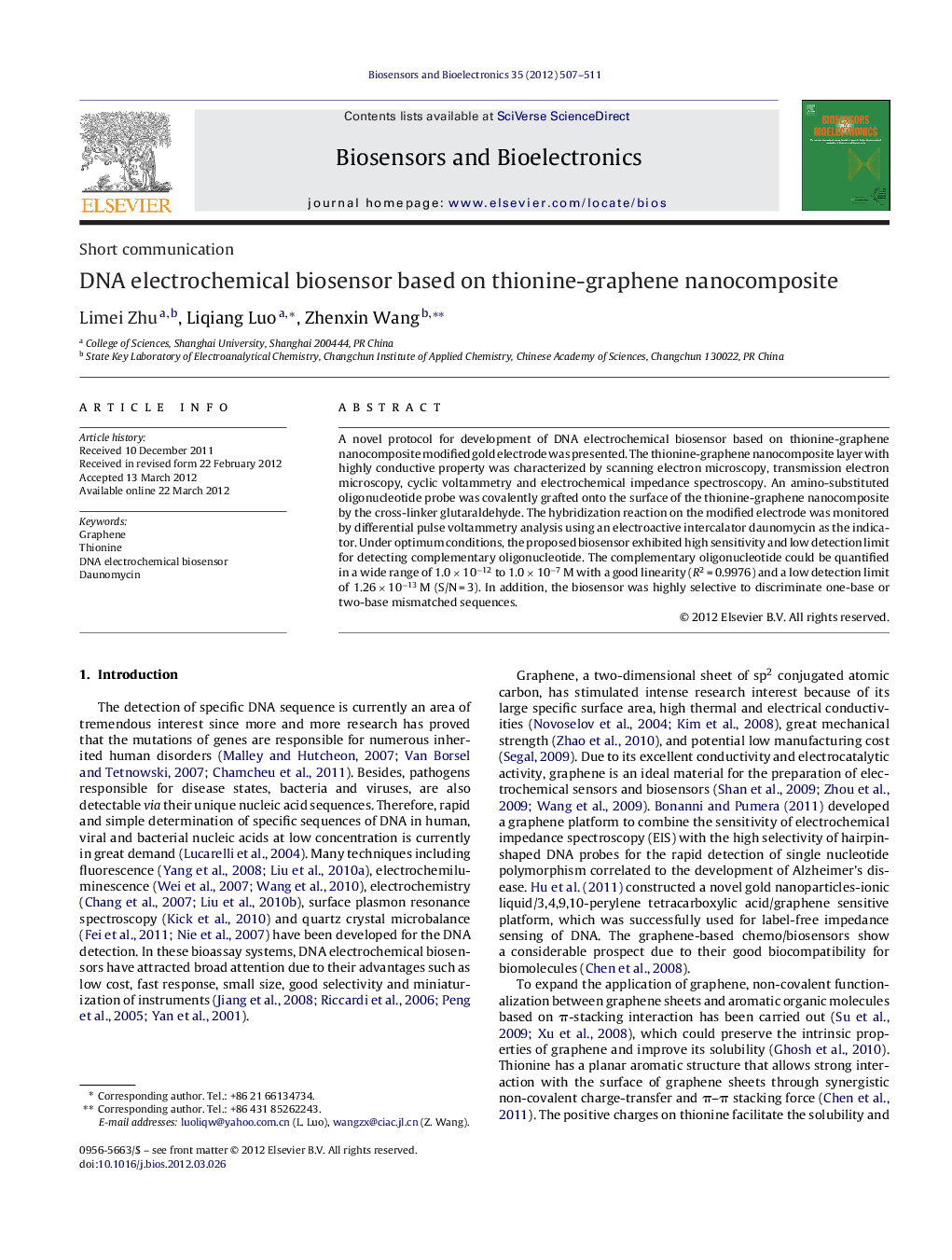| Article ID | Journal | Published Year | Pages | File Type |
|---|---|---|---|---|
| 867432 | Biosensors and Bioelectronics | 2012 | 5 Pages |
A novel protocol for development of DNA electrochemical biosensor based on thionine-graphene nanocomposite modified gold electrode was presented. The thionine-graphene nanocomposite layer with highly conductive property was characterized by scanning electron microscopy, transmission electron microscopy, cyclic voltammetry and electrochemical impedance spectroscopy. An amino-substituted oligonucleotide probe was covalently grafted onto the surface of the thionine-graphene nanocomposite by the cross-linker glutaraldehyde. The hybridization reaction on the modified electrode was monitored by differential pulse voltammetry analysis using an electroactive intercalator daunomycin as the indicator. Under optimum conditions, the proposed biosensor exhibited high sensitivity and low detection limit for detecting complementary oligonucleotide. The complementary oligonucleotide could be quantified in a wide range of 1.0 × 10−12 to 1.0 × 10−7 M with a good linearity (R2 = 0.9976) and a low detection limit of 1.26 × 10−13 M (S/N = 3). In addition, the biosensor was highly selective to discriminate one-base or two-base mismatched sequences.
► Thionine-graphene nanocomposite was synthesized by non-covalent functionalization providing a promising platform for DNA probe immobilization. ► The proposed biosensor performs enhanced sensitivity of detecting cDNA due to the large specific area of the graphene which provide high capturing for molecular recognition elements. ► The resultant sensor possesses a wide range of 1.0 × 10−12 M to 1.0 × 10−7 M with good linearity (R2 = 0.9976) and low detection limit of 1.26 × 10−13 M (S/N = 3).
